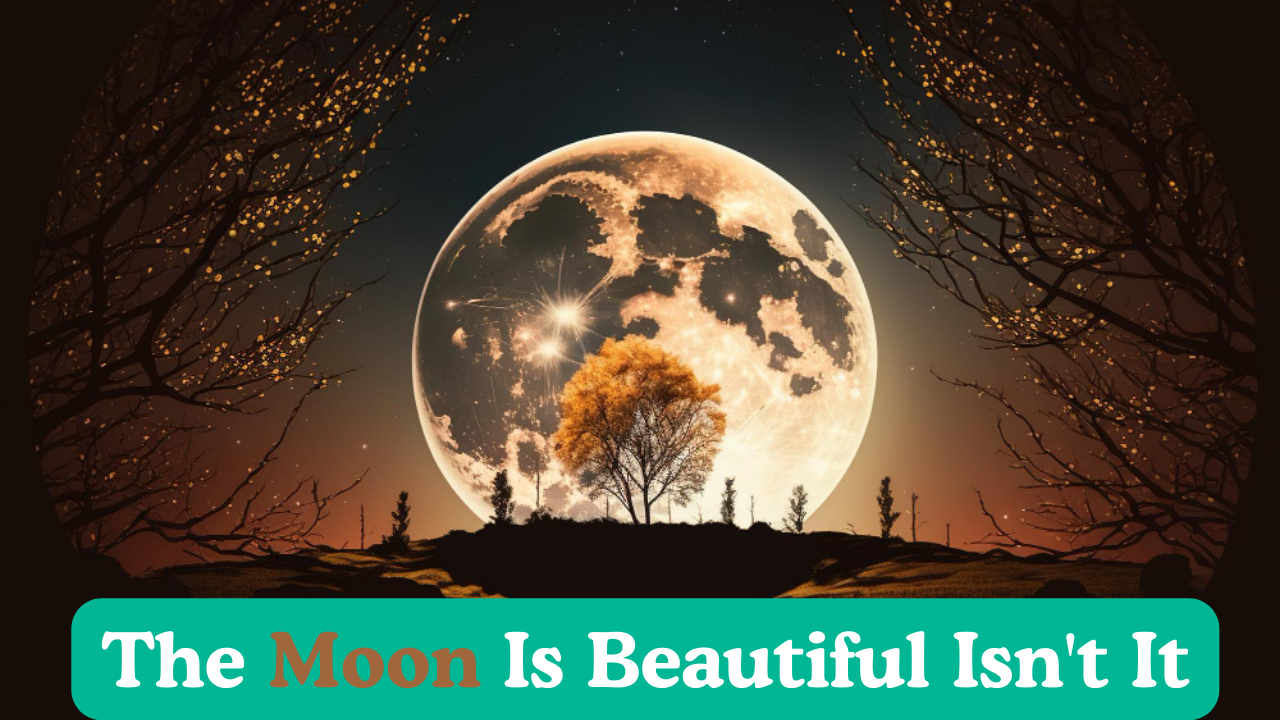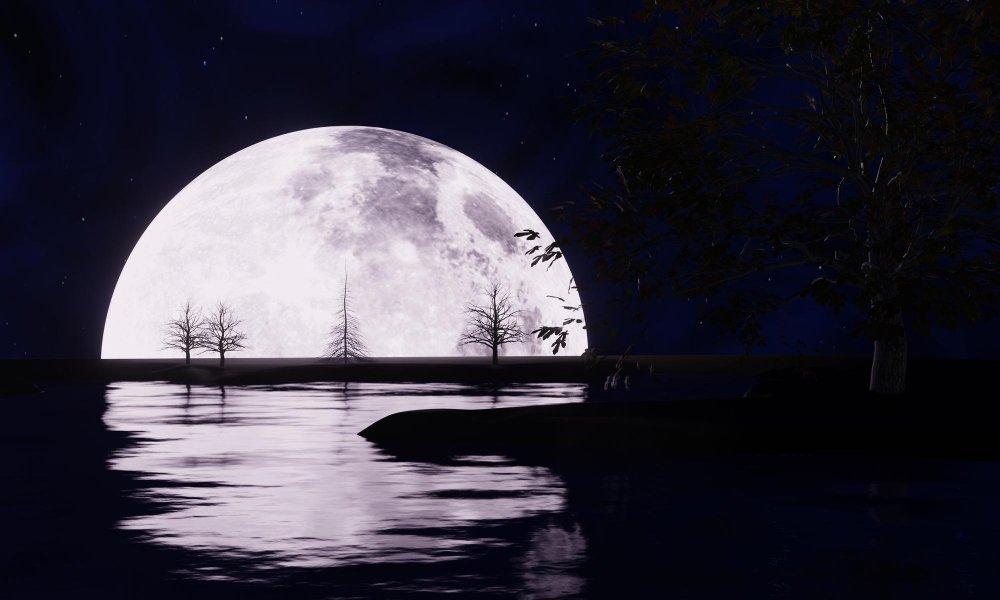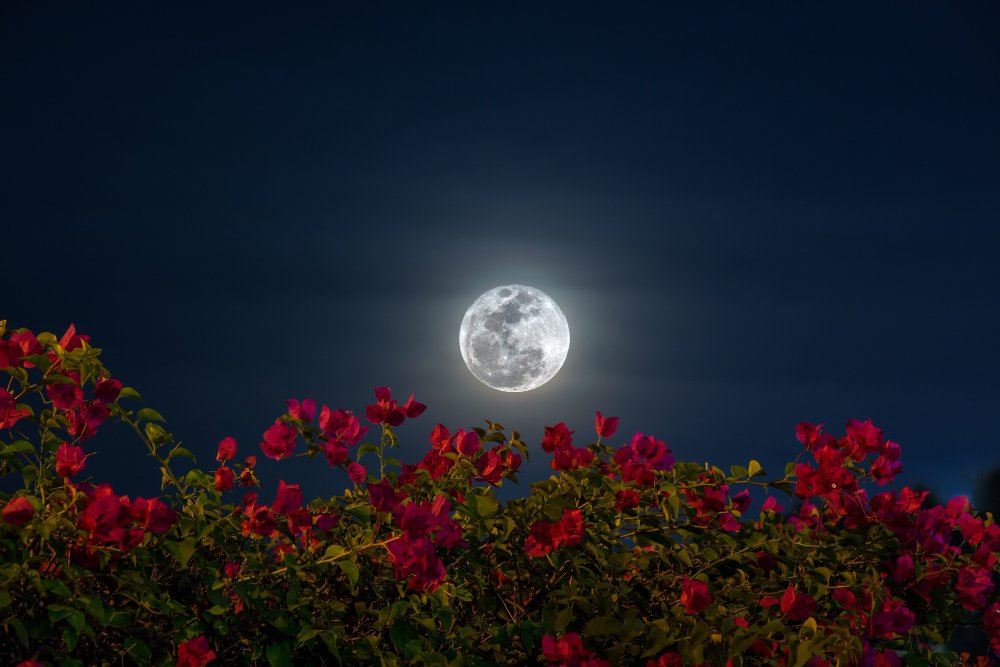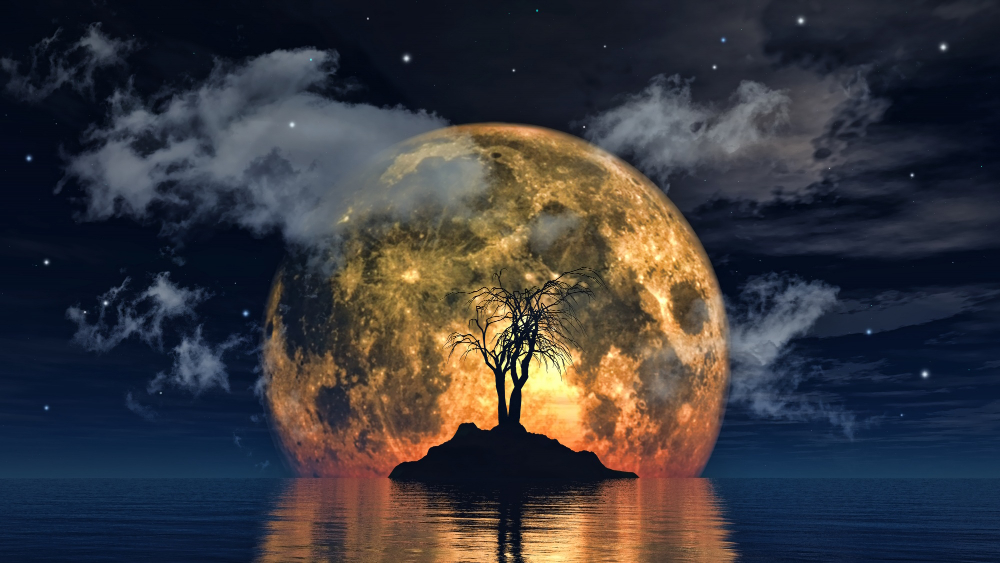The Moon Is Beautiful, Isn’t It: Meaning and Responses
- 1 The Moon Is Beautiful
- 1.1 Where did this term originate?
- 1.2 Poetry Behind The Moon Is Beautiful Isn’t It
- 1.3 Starting Point Of The Moon Is Beautiful Isn’t It
- 1.4 Alternative Expressions
- 1.5 How to reply, ” The Moon Is Beautiful Isn’t It?”
- 1.6 Why Use The Term ” The Moon Is Beautiful Isn’t It”?
- 2 Conclusion
- 3 FAQs
Ever thought of the term, “The Moon Is Beautiful Isn’t It“? The phrase “The Moon Is Beautiful Isn’t It” (美しいですね月, Utsukushii desu ne tsuki) is unique in Japanese. This short poetry enhances moon enjoyment. The phrase “the moon is beautiful, isn’t it?” A lyrical and adorable way to express affection is (月が綺麗ですね, Tsuki ga kirei desu ne?). Like saying, “I think you’re wonderful,” without saying it. Japanese say this instead of “I love you.”
The Moon Is Beautiful
This article defines the Japanese saying, “the moon is beautiful, isn’t it?”. Discover how the moon affects Japanese art, stories, and ideas. Discover “The Moon Is Beautiful Isn’t It” in Japan, whether you like languages, stories, or the moon.
Where did this term originate?
Like manga or anime? The wonderful Japanese phrase “tsuki ga kirei desu ne,” means “The moon is beautiful, isn’t it?” This sweet statement is loved, but what’s inside? Japan’s rich culture inspired “The moon is beautiful, isn’t it?” The phrase “美しいですね月” (Utsukushii desu ne tsuki) reflects admiration for the moon’s astounding beauty.
A touching story is associated with the teaching years of renowned Japanese writer Natsume Sōseki (1867-1916). One day in school, a kid struggled to say “I love you” in a foreign language. Translating was difficult since how can one express the infinite depths of love? Japanese culture values nature and its beauty, as this saying shows. In poetry, literature, and ordinary discussions, it expresses awe at the moon’s beauty.
Japan’s Mid-Autumn Festival brings families together to watch the moon and tell stories. In such cultural events, people would marvel at the moon’s splendor, fostering togetherness and connection. Over time, the phrase has become more than words, reflecting the Japanese people’s deep connection to nature. Today, it inspires awe and unity, reminding us of the moon’s enduring appeal in Japanese culture.
Poetry Behind The Moon Is Beautiful Isn’t It
The moon is Japan’s most beautiful and inspiring natural feature. Beauty and change are its hallmarks. Many writers and poets have utilized the moon as a symbol, creating this magnificent statement.
Starting Point Of The Moon Is Beautiful Isn’t It
This phrase appears in traditional Japanese literature, particularly in Kenji Miyazawa’s writings. He expressed love indirectly in ‘Night on the Galactic Railroad.’
Alternative Expressions
The message is the same, but the wording varies. People often exclaim, “The moon is beautiful tonight, isn’t it?” “Don’t you love tonight’s moon?” Feel like you’re enjoying a great moment with these phrases.
How to reply, ” The Moon Is Beautiful Isn’t It?”
Gentleness is needed to accept a romantic invitation. The charming words, “The moon is beautiful, isn’t it?” revel in the present. Smile with gratitude, and let your eyes show your heart’s glittering stars. Your spirits are united by this exquisite exchange of looks, like a moonlit dance.
Speak softly, “Yes, it truly is captivating,” to show your devotion. You may joke, “The moon can’t compare to your radiance.” Let romance flow from your heart as the night embraces you. Applaud the moon or recall its silvery brightness. Let your words shine like stars in the night sky. How you answer “The moon is beautiful, isn’t it?” depends on the context and your sentiments. These answers are possible:
Agreeing enthusiastically:
“Yes!” So charming.”
“I concur completely. Tonight is amazing.”
Sharing Your View:
“Yes. I adore how it illuminates the sky.”
“Yes, and the stars make it even more special.”
A Little Poetry:
“Indeed, the moon’s beauty is timeless.”
“Oh, the moon’s radiance always amazes me.”
Emotional Expression:
“Wow, amazing. Makes you respect life.”
The beauty is true. It comforts the soul, right?
Create Conversation:
“Yes, you’re correct. Do you know cultural moon legends?
“Absolutely. Have you tried silent nighttime moongazing?
In a humorous manner:
“No question. The moon deserves a prize!”
“Definitely. I assume the moon has been rehearsing its ‘glow-up’!”
Why Use The Term ” The Moon Is Beautiful Isn’t It”?
- Expressing Awe and Connection: This phrase shows reverence for the moon. People who utilize these phrases quickly bond over their love of nature.
- National Tradition: Japanese literature, poetry, and discussions employ this word. This honors tradition and the moon’s cultural importance.
- Conversations Starter: Discussing the moon’s beauty may spark talks about nature, the universe, and personal tales. An extraordinary approach to starting a conversation and exchanging experiences
- Emotional Resonance: Literature and art associate the moon with love and desire. This phrase may evoke nostalgia, romanticism, or contemplation.
- Simple and universal: Everyone understands the statement. It shows that basic things can be magnificent.
- Cultural Exchange: Discussing this remark, especially across cultures, helps individuals appreciate varied beauty and environmental views.
Thus, “The Moon Is Beautiful, Isn’t It?” has lyrical and cultural meanings and reminds us of our humanity and the beauty of nature.
Conclusion
We are lured to the moon’s unfathomable beauty as it illuminates the night sky. “The moon is beautiful, isn’t it?” invites us to appreciate the heavenly beauty that has evoked the most profound emotions and artistic manifestations. As endless as the universe, its attraction reminds us of our humanity and the cosmos’ enchantment.
FAQs
What does “the moon is beautiful, isn’t it?” signify in Japanese culture?
Japanese people employ this flowery and oblique manner to convey love and appreciation.
Who is Kenji Miyazawa, and why is he related to this Expression?
Famous Japanese writer Kenji Miyazawa incorporated love and sentiments in his work “Night on the Galactic Railroad,” making it literary history.
Does this phrase have Japanese variations?
Yes, variants like “The moon is beautiful tonight, isn’t it?” or “Don’t you think tonight’s moon is lovely?” express this statement and shared beauty.
Is this phrase still used in Japan?
Yes, it’s still a significant element of Japanese culture, used to express love and sentiments in literature, films, and discussions.




















